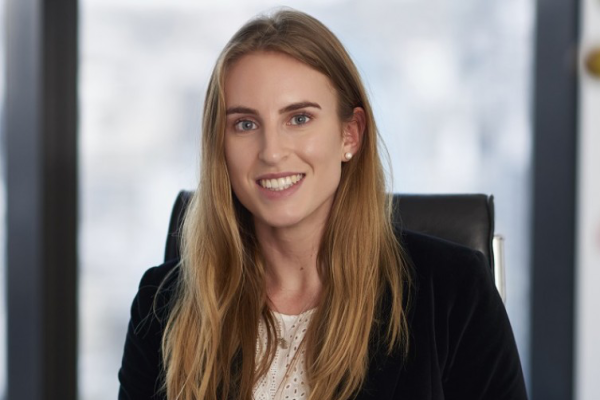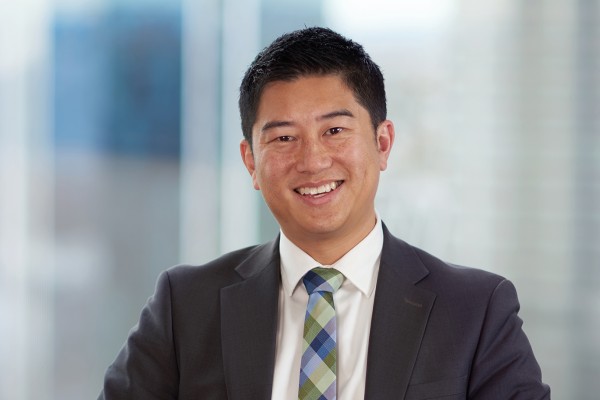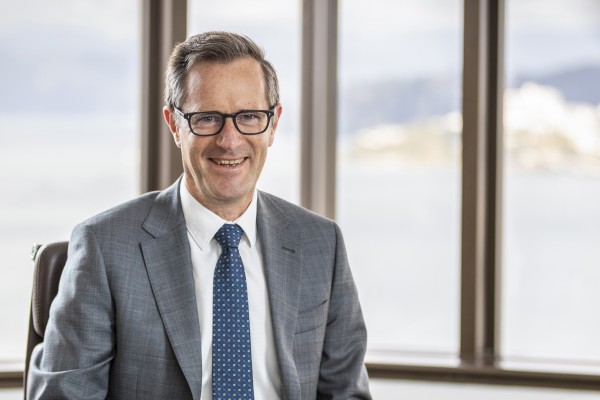James Lee
Chief Executive Officer
James has 20 years’ experience in the capital markets, from the early days of his career on Jarden’s trading desk, to his appointment as CEO in 2017. In previous roles as Jarden’s Head of Securities, Head of Institutional Equities and Head of Sales and Trading, James built strong relationships with corporate and institutional clients across Australasia.
James has been involved in all Jarden’s equity capital transactions for more than a decade, from IPOs to secondary sell downs, mixed ownership models and bespoke capital solutions.
His team has led capital raising efforts for some of New Zealand’s most well-known companies across a range of sectors: Mighty River Power (now Mercury Energy), Genesis Energy, Oceania Healthcare, Z Energy, Auckland International Airport and Pacific Edge Biotech. He also led the IPO process that facilitated the growth of Kiwi success stories like Xero and Synlait Milk.
Following the global financial crisis, James and his team led a number of high profile recapitalisations, finding innovative structures that enabled prominent New Zealand companies like Nuplex and Pyne Gould Corporation (now Heartland Bank) to lay the foundations for ongoing success.
James is a director of First New Zealand Capital Holdings. He is a member of the steering committee for Capital Markets 2029, and the investment committee for Cystic Fibrosis New Zealand. He has a Bachelor of Commerce (Economics) from Victoria University of Wellington.
You’ve been with Jarden a long time. Tell us about your journey from the trading desk to the boardroom
I began working part time at Jarden (then Credit Suisse First Boston) while studying at Victoria University. When I graduated I was offered a job at Westpac, but I was persuaded that Jarden offered better global career prospects. Of course, every time I’ve contemplated going overseas an interesting role has come up internally, and I’m still here.
Jarden is very good at pushing you just far enough to test you, even if that was slightly further and faster than I would have liked at times. Age is no barrier here, capability is the only thing that matters. If someone’s awesome, they’ll get pushed harder until we find out what they are truly capable of achieving, because that way everyone is better off. That approach has certainly worked well for me.
How important is firm culture in a sector like finance?
Trust is the absolute foundation of our business - yet you can’t claim trust, you have to earn it, every day. Behaviour, culture and ensuring that clients’ interests are prioritised over money are things the global finance sector has grappled with, especially over the past decade.
We’re fortunate to have our founding president Bryan Johnson still serving on the Jarden board after almost 50 years, alongside his successor, Bill Trotter. That means our ‘people first’ culture has been pretty constant and consistent over time. It’s also very rare for us to encounter something we haven’t dealt with before - there’s usually a tale to be told about a deal from the 80s or 90s.
That said, boundaries change, technology changes and what was acceptable 10 or 20 years ago may not be acceptable today. We want to make sure we always know where that boundary is and to build a strong culture today, so we are prepared for the challenges of tomorrow.
Tell us about some of your career highlights
This business is a roller coaster, and the journey from one day to the next can be pretty intense. I’ve been involved in hundreds of transactions over the years, but the ones that stand out are those where I feel I’ve personally played a key role.
Synlait Milk was a project of personal pride for me and Sam Ricketts, Jarden’s head of investment banking. After a failed IPO, Sam managed to find an investor in Bright Dairy. It was a tough process, but we got the IPO done in 2013, then raised capital a few more times. Synlait is now a $2 billion company and employs more than 1,000 people.
I’ve enjoyed supporting generational clients like Xero all the way from the first capital raise, through to the IPO and then delisting. There was a wonderful quote from an institutional investor in those early days: ‘Xero is worth zero’. Fortunately Rod Drury had this way of selling the story and such an absolute passion, that it was difficult not to believe him. Xero is now racing towards becoming New Zealand’s first $10 billion tech start up.
Jarden has a track record of taking a chance with people like Rod, Lloyd Morrison, Joan Withers and Graham Hart - great Kiwi success stories where we can look back on our part with pride. It’s satisfying to look at where each company started, where they are today and the battles we’ve been through together over a decade or more. It doesn’t always work out the way we hope, but it’s great fun going on the journey together.
What have been the most challenging times?
The recapitalisation cycle in 2009 was a phenomenally difficult period. Banks were calling in debt and businesses would need say $200 million in a real hurry.
Nuplex was the first recapitalisation in the Australasian cycle and we had no idea what the uptake would be. We sat in my office and had to imagine different scenarios and structures. We failed the first time, but we made it work the second. Nuplex managed to turn the $100 million we found for them into a $1 billion company by the time it was sold to Allnex in 2016.
Pyne Gould Corporation was the only finance company of any size to come through the global financial crisis, and at the worst of the market we had to find 100 percent of the market capitalisation. Even thinking about that now, it was a big risk. We had some tough conversations, but we managed to get it done. Heartland Bank is now a $1 billion company and has built a really great business from the recapitalisation of PGC.
I look back with a lot of pride at those transactions and the pretty incredible businesses that have grown from that period.
What have you learned from working closely with business leaders?
I spend a lot of time travelling with business leaders, so I steal a bit from all of them. I’m inspired by their purpose, vision and belief and we try to instill that in our business too. There’s no point discussing something in a twelve-month context, you have to think about what the business will look like in a decade, not after the next deal.
That long term thinking is fundamental to supporting our clients. The journey is never clean and simple, but we go on it with our clients and no matter what happens we will absolutely see the process out. When the client needs a hand and expects us at 4.00am, we will be there. We’ve had enough of those calls that we know what we’re doing - and that’s often the most fun.
Tell us about your vision for Jarden
We’re building a traditional investment institution of the kind that used to exist in the 1920s, where our clients can come to us for advice on anything and we’ll have the right expert. If we believe in what you’re trying to do and we believe we can match the right risk profile, then we want to help.
Over the past few years, we have looked at our offerings to make sure we can match our clients’ needs. We’ve set up Principal Investments to help fund small and medium sized businesses and Pearlfisher to grow our property expertise. We’ve acquired Direct Broking because there is always room for tech and a DIY approach to investing, and OMF to help SMEs manage risk. That completes the picture of where we currently want to be - after that it was about finding the right people to drive that vision forward.
How do you get the best out of people?
As the business gets bigger, you have to have better people around you. Over the past few years, we’ve been carefully building our management team so we have excess capability. It’s fun to wander the room and realise that almost everyone here has been handpicked, or has worked with us from scratch. When we say we trust them implicitly, that really means something.
Then it’s about giving people autonomy and responsibility. We set the guard rails, then give our people freedom to make decisions and hold them accountable for that. Everyone is allowed to make mistakes, you just have to keep being slightly better tomorrow. That culture attracts people who want that freedom and that support.
What would you say to someone at the beginning of their finance career?
At the end of the day, only two things matter: the quality of the relationships and your intellectual property. This is no longer an industry where you can simply work long hours and expect to be rewarded - you’ve got to be cultivating knowledge and experience, and that comes from the scars when things go wrong.
Transactions have patterns and if you haven’t been through it before, your advice is almost worthless. That’s why people are our most valuable asset - we want you to want to be here, and we want you to stay for the long haul.



